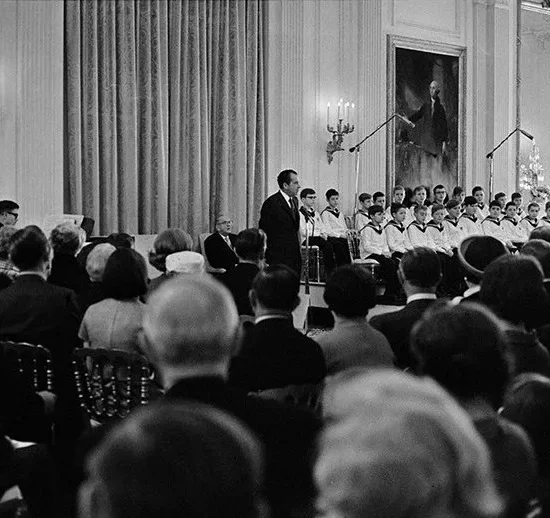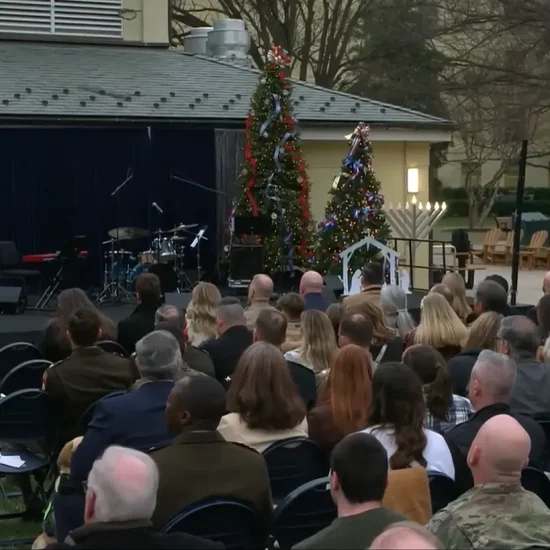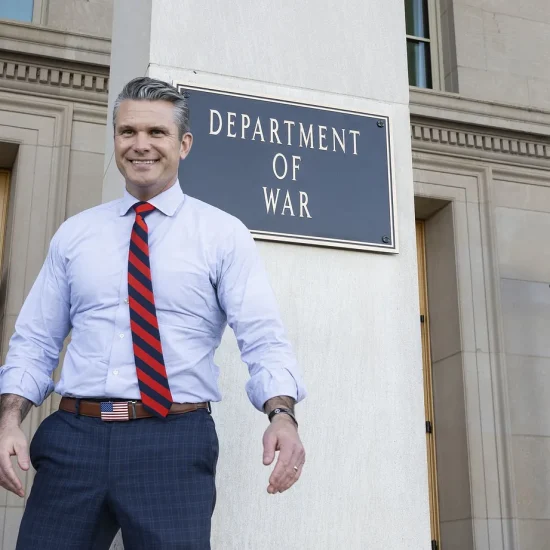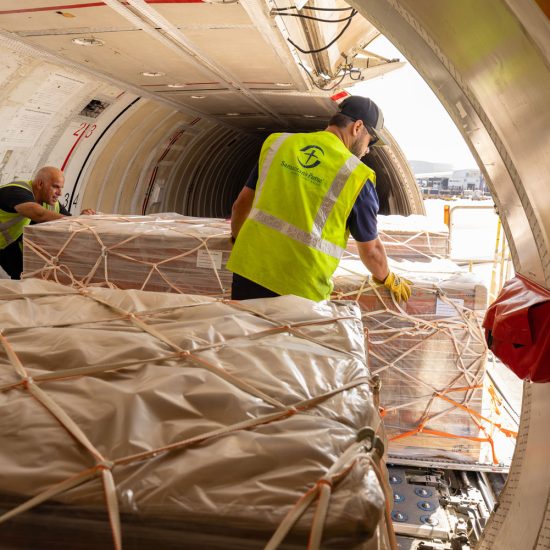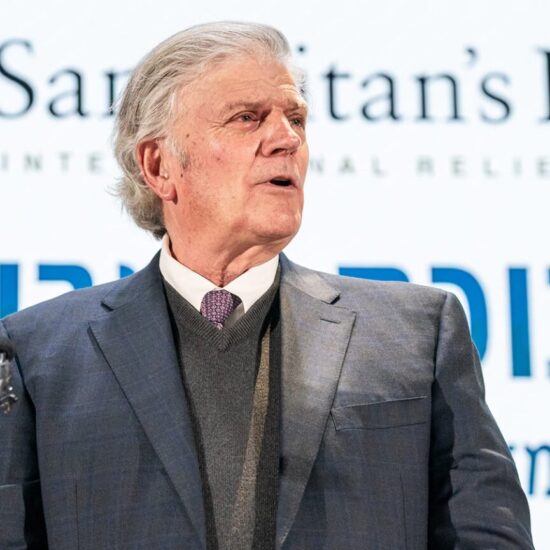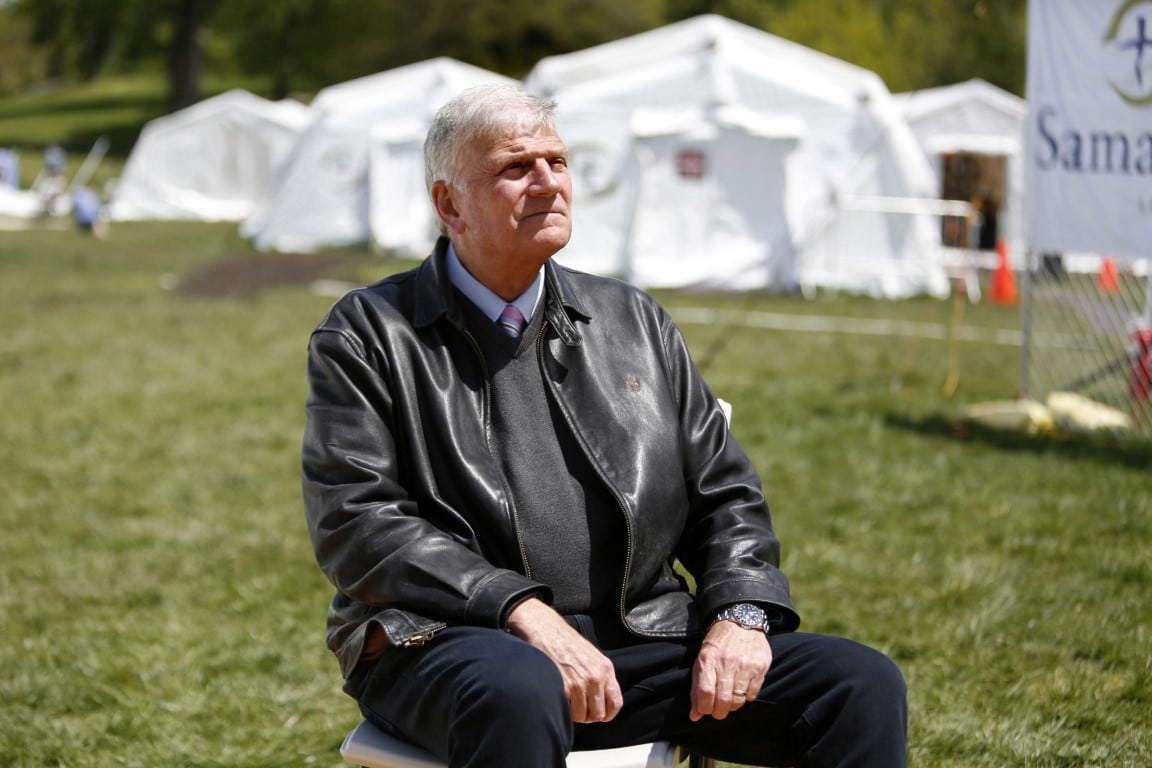
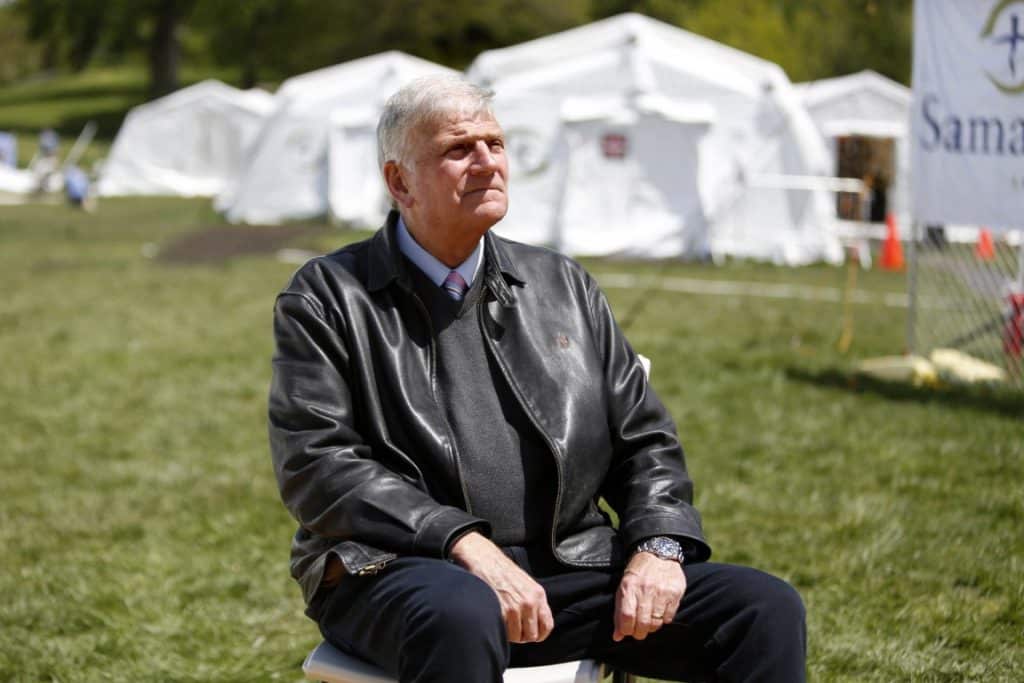
Rev. Franklin Graham, president and CEO of Samaritan’s Purse, sits for a portrait at his group’s field hospital in New York’s Central Park. The Associated Press sat down to talk with Graham during his recent visit to New York, where his Christian relief charity Samaritan’s Purse had operated the Central Park field hospital to treat coronavirus patients. (AP Photo/Jessie Wardarski, File)
NEW YORK (AP) — The Associated Press sat down to talk with Rev. Franklin Graham, president and CEO of the Billy Graham Evangelistic Association, during his recent visit to New York, where his Christian relief charity Samaritan’s Purse had operated a Central Park field hospital to treat coronavirus patients.
Below is an excerpt from that conversation with the prominent conservative evangelical leader and son of the late Rev. Billy Graham, lightly edited for clarity.
Q. The CDC has produced some draft guidance on reopening houses of worship that the administration has decided not to release. That guidance didn’t tell churches and synagogues what to do but made recommendations. Where do you think the government should come down on this? And what do you think churches ought to consider when they decide when and whether to welcome people in person back?
A. I think it’s important that we listen to the scientists, we listen to government leaders. But at the same time, all of us have to take responsibility for our own personal care. We can’t trust the government to do that.
We have to use common sense and and try to protect other people, but I think there’s a fine line to what the government right now should do or not do as it relates to forcing people. I think they really should be advising people, giving us the safeguards and the standards are we should keep, but I think it’s up to every individual. And I just think in some cases, the government may be going too far. Of course, you can’t treat New York the same as you would Wyoming or Montana or North Carolina or South Carolina.
Q. We are past 72,000 deaths in this country from this virus so far (at the time of the interview), and in some areas that’s going to climb still. It’s a moment of collective trauma that we’re starting to have a national dialogue about. As a spiritual and religious leader, I’d love to get your thoughts on whether America as a whole has collectively kind of reckoned with that enough.
A. We haven’t passed the number (who died from) the flu (in 1918). … Coronavirus has been in the news every day for the last eight weeks. Every day, the news media starts off with the coronavirus. The coronavirus is dangerous. And if you are weakened, it could kill you. When I say weakened — if you have diabetes, you have heart disease or something … it can be deadly.
But heart disease is bad. Cancer is bad. I think heart disease is still the No. 1 (cause of death in the) country. But we have to realize that all of us are going to face death. Death is coming for all of us. And coronavirus or the flu or whatever can kill you. And we just have to realize that in life we’re going to have viruses, we’re going to have cancer, we’re going to have these things. Let’s take the best care of ourselves and we possibly can. But let’s live our life.
Q. It sounds like, contrary to thinking that maybe we need more collective mourning moments, you’re thinking we need maybe more of a moving forward moment, a putting this in context moment?
A. I think so. We need to move forward. And we only have so many days of life. Now, I don’t know how many those days are. We think that we may live into our 70s or 80s or 90s. My father lived to be just right at 100. My mother (died) in her early 90s.
But I don’t know if I’m going to live past tomorrow. None of us have a lease on life. Live the life that God has given us. But again, be smart about it. What we eat is important. What we drink is important, what we put in our bodies are important. And so many people suffer from all kinds of diseases because they haven’t taken care of themselves, and they die at an early age. I’ve had friends that smoked, and they died early. And it’s a shame they didn’t take better care of themselves. This coronavirus is going to be a thing of the past one day, I believe. But we’ve got to move on, and live our life.
Associated Press religion coverage receives support from the Lilly Endowment through the Religion News Foundation.


